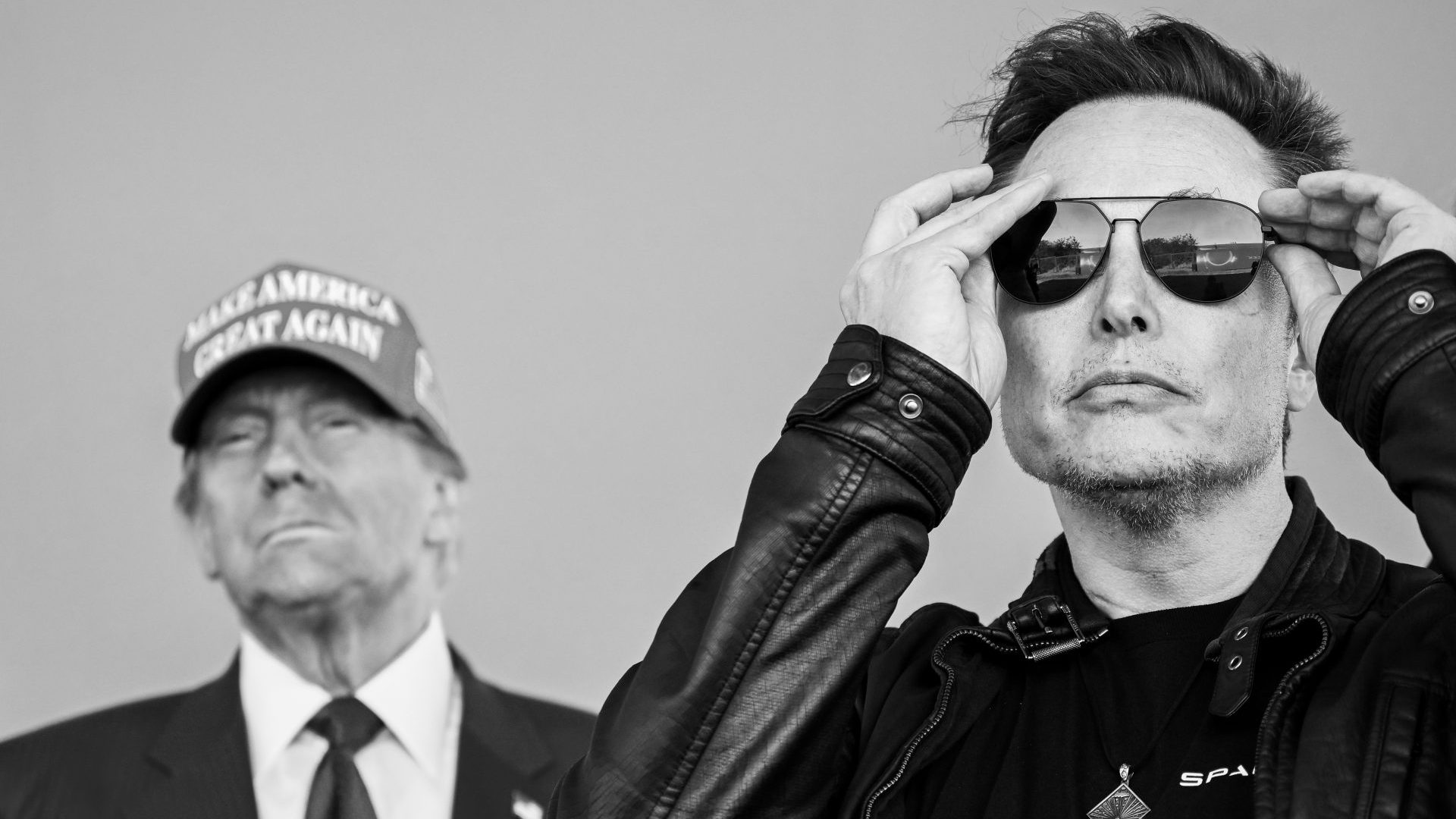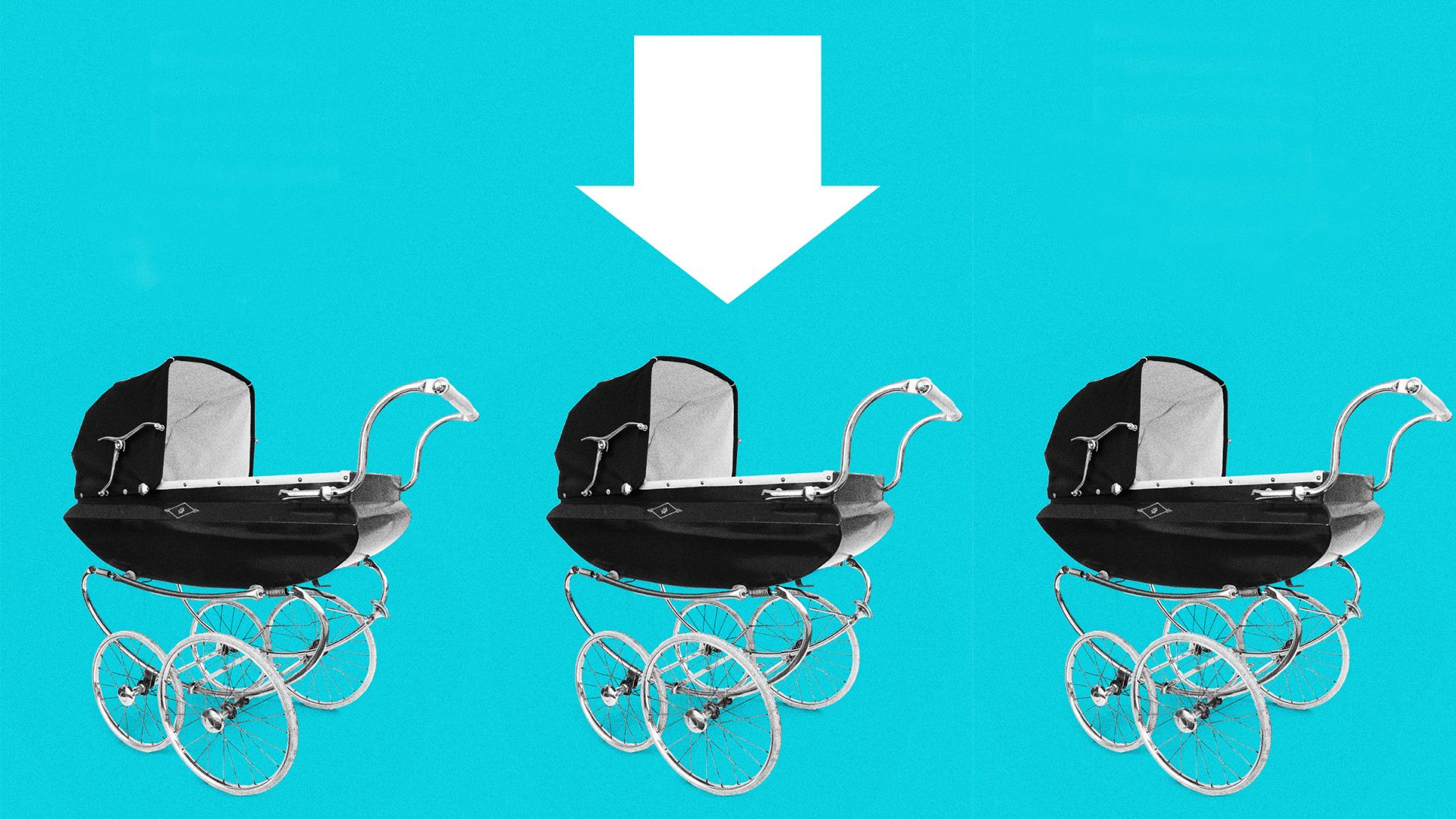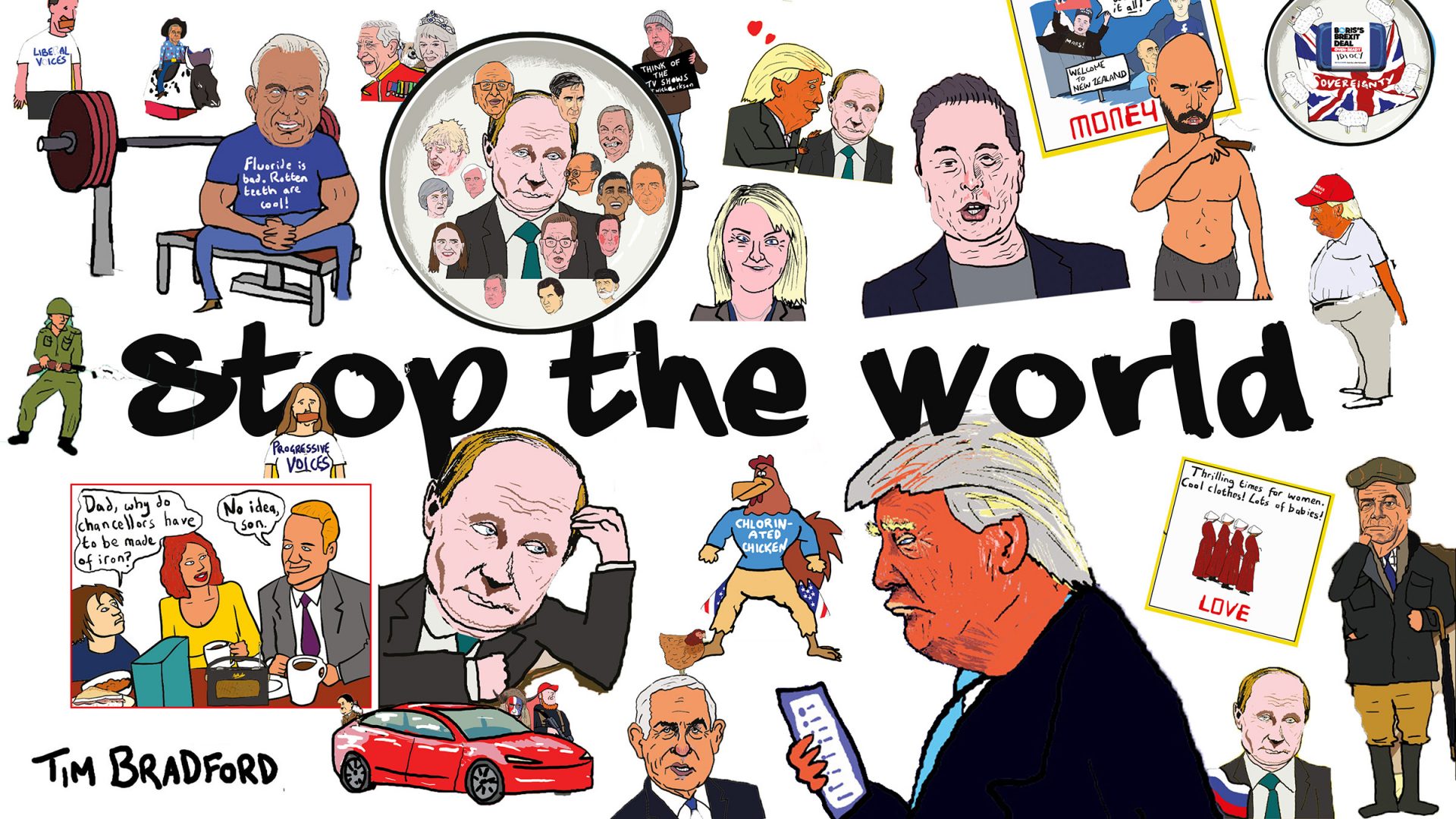Philip Low, founder and CEO of NeuroVigil – the world’s most valuable neurotechnology company – is less than three minutes late for our interview. When he arrives, he is impeccably polite, even apologetic as he settles into a peacock chair, the flare-back style that was made famous in the iconic 1967 portrait of Huey P Newton, leader of the Black Panthers.
Elon Musk was once a close friend. Not any more. On January 24, Low published on Facebook a blistering, 1,900-word takedown of Musk. An abridged version was also uploaded to LinkedIn. Musk, he said, is a “narcissist with an obsessive lust for power”. He is a “total, miserable, self-loathing poser”. The post went viral.
“Nazis believed that an entire race was above everyone else,” Low wrote. “Elon believes he is above everyone else. Everything Elon does is about acquiring and consolidating power. That is why he likes far right parties, because they are easier to control.”
Now Musk has fallen out with another friend – Donald Trump, whom he helped elect. After an initial burst of combative tweets, Musk has fallen back into a passive state of acquiescence under intimidation from the president. This neutering of the world’s richest man has coincided with the deployment of the national guard in California and Trump’s Red Square-style military parade in Washington, a combination that led Jonathan V Last of the Bulwark to describe it as “the most dangerous week in American history (so far)”.
Low, 45, is like a scientist wunderkind from central casting. He was mentored by Sir Francis Crick, one of the molecular biologists who deciphered the structure of DNA and, as it happens, was the previous owner of the flamboyant wicker seat. He earned his PhD in computational neurobiology by presenting a mathematical technique to map brainwaves, leading to a thesis with just a single page in its body – the shortest doctorate in the history of the University of California – and over six dozen international patents.
Musk and Low’s friendship began in 2011 when they met in Paris. They would “text often and go to each other’s parties” and Musk, who is much older, even spoke about his “women problems” with Low. Both had violent fathers who lost their fortunes; both had been bullied at high school, ultimately finding a home in Californian tech. By 2013, they were close enough to give a joint interview to the scientist Dr Crystal Dilworth, in which they discussed their ideas and dreams.
NeuroVigil’s website still lists Musk as an adviser, but also says that his services were terminated by Low, who fired Musk back in 2021. Alongside Musk’s bio, it states that he owns “less than 0.05% of NeuroVigil” and that he has not been invited to reinvest in the company. Low jokes that the only thing he has in common with Donald Trump is that they’ve both “fired Elon”.
In 2012, Low produced the Cambridge Declaration of Consciousness, stating that some brain structures and networks related to consciousness are not unique to humans and that animals are sentient. It was signed by a group of eminent neuroscientists as well as the late physicist Stephen Hawking, who had helped Low to collect data for one of his inventions, iBrain. This was a non-invasive monitor that helps to interpret brainwaves, decipher intention and help communication.
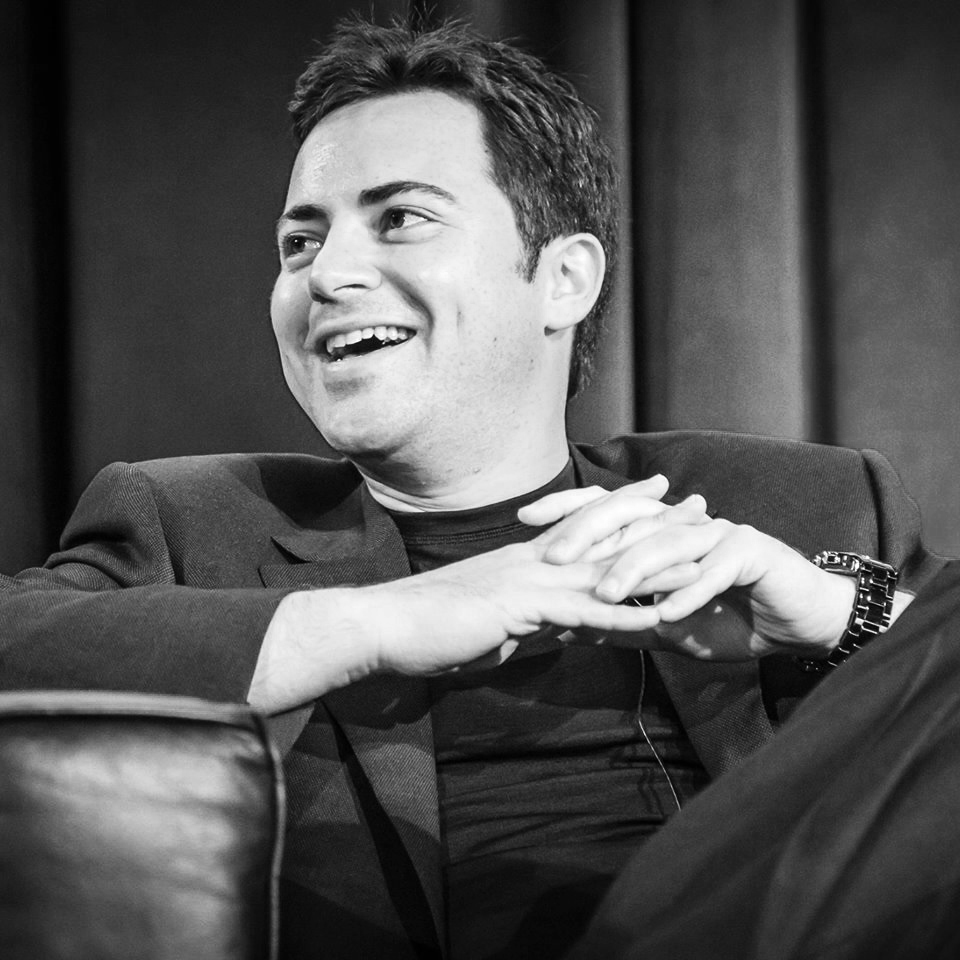
In April last year, iBrain launched in four American states and 1.4% of its stock was sold for more than $85m, valuing the company at over $6bn, reportedly the highest second-round financing valuation in history. (That is 12 times Facebook’s valuation at the equivalent point.)
Low owns between 80% and 90% of NeuroVigil, all of which makes his criticism much harder for Musk to simply brush off. “I am not an activist; I am just a scientist,” said Low. “I report data, you know? As scientists we have a duty to speak and I am speaking on things which I believe need to be said… I was very critical in the phase when there was radio silence everywhere. Congress was in a coma and I went after Elon in a way nobody else could.”
And now that Musk has fallen out catastrophically with Trump, might that cause him to reflect on the enormous damage he has done to America, and the world, by bankrolling and supporting the current president? “He was, in my view, more prone to genuine self-examination years ago,” said Low. “At this point, he is much more likely to lash out and do what he does when he cannot conquer something, which is to create a rival to undermine his initial target, such as a political party, despite being extremely unpopular. At the very least, I expect him to attempt to rally Silicon Valley to break away from Trump, to heavily lobby Congress and to tweak the propaganda-boosting settings on X.”
Musk certainly has lashed out, attacking the man who only weeks ago he supported and who he declared he loved “as much as a straight man can love another man”. Leaving Trump’s inner circle, he turned to X/Twitter, stating that “without me, Trump would have lost the election” and describing the current spending bill as a “disgusting abomination” and a “mountain of disgusting pork”. He even suggested that the full details of Jeffrey Epstein’s activities had not been disclosed because the president was named in the files.
Suggested Reading
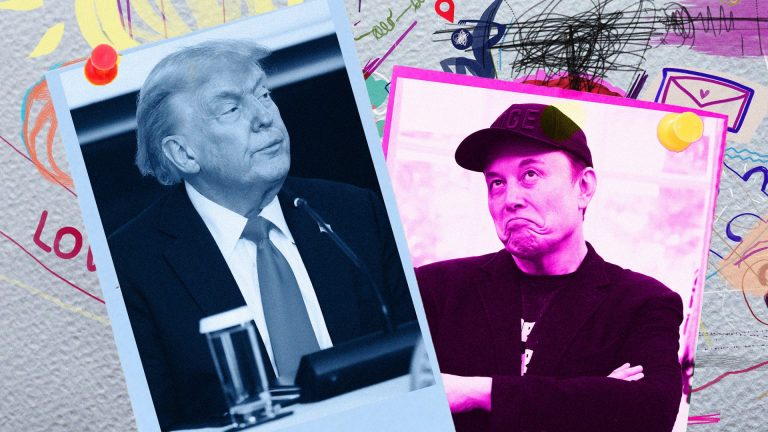

Actually, it’s men who are too emotional for power
Trump returned fire, writing that Musk “just went CRAZY” and warning that if his former ally continued to fight the government, he would face the full weight of administrative powers that Musk himself once exploited. “The easiest way to save money in our Budget,” Trump posted on social media, “Billions and Billions of Dollars, is to terminate Elon’s Governmental Subsidies and Contracts. I was always surprised that Biden didn’t do it!” The two men’s hostilities sent Tesla’s share price sharply downwards. Musk is threatening to set up a new party to challenge Trump, of which Low says: “Having failed to conquer the institution he invested in, and assume a shadow president role, Elon is now poised to replicate his typical behaviour in such situations, and attempt to establish a rival entity to dominate the organisation that rebuffed him.”
Now Musk finally sees Trump is a catastrophe, does Low think his former friend is capable of any contrition? “My sense is that he may act as if he has remorse to signal that Trump could not have been president were it not for him, but that would be more of a desperate flex than true remorse for having enabled Trump.”
As well as that personal reckoning, Musk also has to deal with the very public collapse of the “tech genius” persona he had created around himself. But as Low points out, everyone thought Musk was a genius – apart from the people who actually knew him. “Elon is not the guru he portrays himself to be. And I know that because I’ve known him for so many years. I remember him when he would tell me that he didn’t understand, didn’t have the expertise to understand some data. Over the years, he has created this techno-king mythology or whatever we wish to call it – but he was fired by PayPal, fired from [his first company] Zip2.
“In Silicon Valley, the business-trained CEOs tend to be more, should I say, replaceable in the eyes of investors, whereas the tech CEOs have more staying power. So, he wanted to present himself as that, and he went from someone with the humility of saying that he didn’t fathom some data to being a person who pretended to be an expert on pretty much anything. I have shattered that illusion. I’ve made it very clear that’s not who he is.”
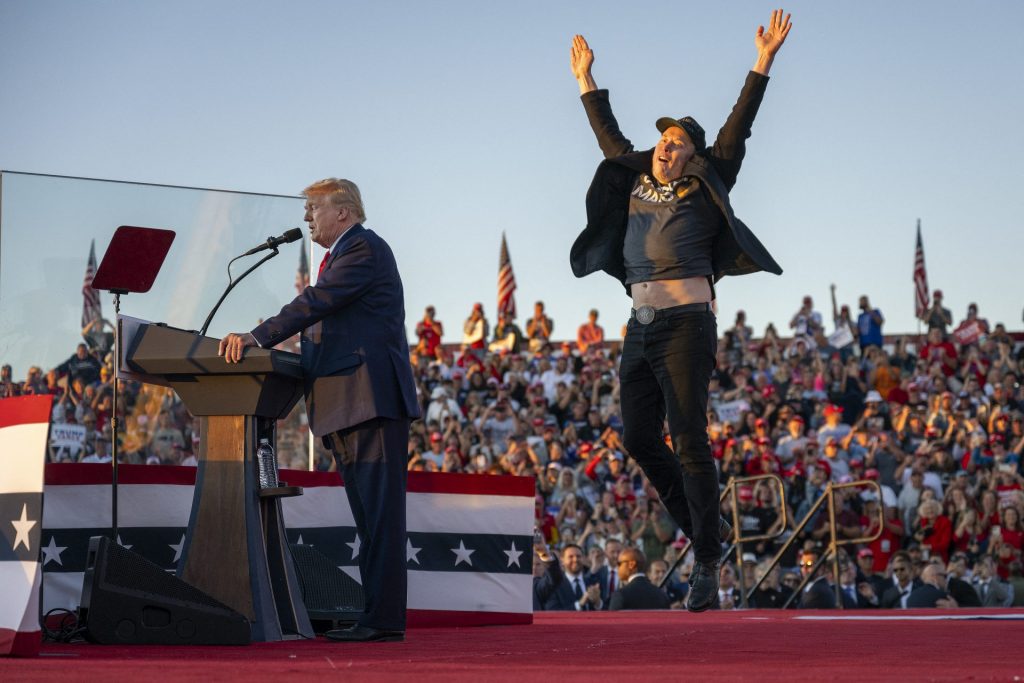
Low believes ordinary Americans are at last waking up to the damage being done to the economy and social fabric of the nation by the Trump administration, and the role that Musk played in that disaster. But he is also deeply concerned for Europe – Low himself was born in Vienna and educated in Paris and in Switzerland as a child. The UK, he says, must “look for its Churchillian soul” and not give in to the bullying, threats and “crazy blackmail”. “I am thrilled Mark Carney prevailed in Canada,” he says, “but I am concerned for Europe.”
Platforms such as X and Meta “boost far right voices at the expense of moderate voices,” he says. “They are weapons to weaken Nato and one way to do that is to encourage right wing agendas throughout Europe and strengthen Vladimir Putin’s hand vis-à-vis Ukraine. I would encourage the British government to take a very, very hard look at both to see what regulation and what measures can be put in place to continue to allow them to operate or if one should ban them altogether.”
I remember reading Low’s essay on Musk as soon as it appeared and, like so many others, felt an immediate sense of elation and relief that someone, anyone – let alone a billionaire neuroscientist – finally had the guts to call him out in public. Soon after, though, I noticed that the original Facebook post had disappeared. It would emerge later that it had been shared nearly 50,000 times and viewed by millions before being removed. Shortly afterwards, Low found himself locked out of his LinkedIn account and was reinstated only after threatening litigation.
Suggested Reading


Elon Musk is a dictator in the making
“Apparently, Elon called the CEO of Reddit to ask him to remove related threads he disliked,” he alleges. Meta and Facebook worked towards the same end but in an “even more insidious” way, Low says, claiming that they suppressed posts that were favourable to his Musk essay and removed shares and likes. He also alleges that the social media platforms intercepted messages, even after their receipt.
“They’re in an ocean of trouble and I’ve put $250m aside to go after them,” says Low. “When Mark Zuckerberg told everyone he was dispensing with fact-checkers, going to community notes and that Meta was going back to free speech, that was a complete lie. Again, these social media platforms do not owe anybody free speech, but when they say that that’s what they’re providing and they’re not, that is false advertising, and that’s when they’re liable.”
Low jokes about avoiding an El Salvadoran prison, but concedes later he has received “a ton of death threats… some credible” and has been forced to hire armed protection. I ask if he is scared. “I’m a bit of a weirdo,” he says. “For me, fear is an invitation to go further… I don’t bow down to anybody, especially if a person is hurting people.”
Talking to Low, who is dressed in a pinstripe jacket and black T-shirt, and keeps his dark aviator glasses on throughout our 55-minute chat, I’m reminded of the eccentricity and creativity of the early tech entrepreneurs and Apple’s iconic 1997 ad “Think Different”, with Richard Dreyfuss reciting a poem calling out to the “crazy ones, the misfits, the rebels, the troublemakers”. I ask him what he thinks has changed in the culture of Silicon Valley, which is now dominated by unelected technocrats who have ensconced themselves within the structures of the political system.
“The viewpoint is still that we are better when we are diverse, we are better when people can rise to their potential regardless of their creed, their sexual identity, orientation, skin colour,” he says. “An entrepreneur is a dealer of hope, because you have to sell people a different future and tell them what must be done in order to get there,” he says. “One of the reasons I have continued doing this is that so many people wrote to me and said that I was giving them hope. And to the extent that I can give people hope – with a good dose of reality – I am more than happy to do that.”
Low’s late father, Steven, was a Holocaust survivor, and he wants it understood that he confronted Musk privately before going public. He suggests Musk should, for his own sake, now issue a public apology for his Nazi salute, “to Jews, Gypsies, homosexuals – anybody who has been a victim of the Nazis”.
“I told him to read Crime and Punishment, and reminded him of Raskolnikov’s fate,” said Low. “I told him he had the same mistaken notion: that one validates one’s sense of superiority by breaking the rules. But it only works so far, and then reality catches up.”

